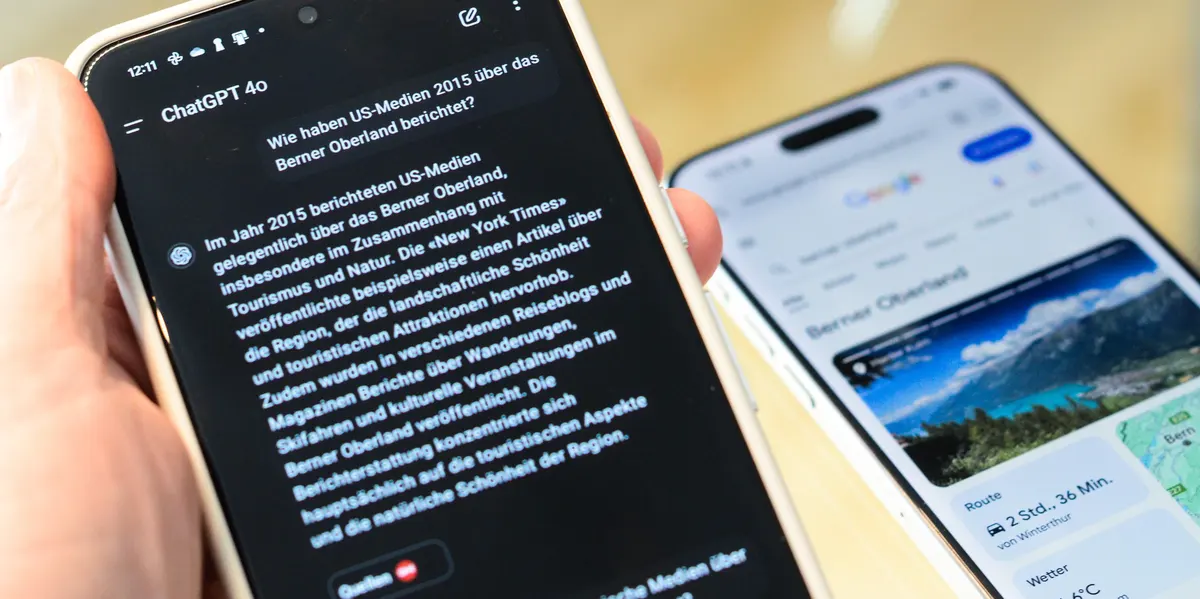As conversational AI becomes more integrated into our daily lives, brands are increasingly interested in ways to appear within the responses generated by ChatGPT. Although this isn’t the same as traditional SEO, there are effective strategies to increase the likelihood that your brand might be referenced or recognized by AI models like ChatGPT. In this article, we'll walk you through the key steps to building visibility in the world of AI-driven responses.
Understanding How ChatGPT Works
Unlike traditional search engines, ChatGPT doesn’t search the web in real-time or rank content based on keywords. Instead, it generates responses from its trained data. This data set includes large volumes of publicly available information but lacks the ability to live-browse websites. So, while you won’t "rank" in ChatGPT responses the way you would in Google, there are still ways to improve the chances of your brand being recognized by future AI models.
1. Master the Basics: High-Quality SEO and Content Marketing
The foundational elements of SEO and content marketing are essential not only for search engines but for building general digital authority. Here’s how to leverage them for AI awareness:
- Develop High-Quality Content: Focus on creating value-driven, informative, and accessible content across your website and social channels. When OpenAI updates its models, they may reference public, high-quality sources, so having a robust online presence is crucial.
- Build Authoritative Backlinks: Backlinks from reputable sites help strengthen your brand’s credibility online. The more your brand appears across trusted websites, the more authority it gains—potentially influencing AI training datasets.
- Be Active on Popular Platforms: Prominent sources like Wikipedia, LinkedIn, and reputable news outlets can help establish your brand’s legitimacy and visibility, which are beneficial as potential reference points for AI models.
2. Boost Brand Recognition and Visibility
AI models are more likely to mention brands with significant public awareness. Increasing your brand’s reach and reputation online can go a long way:
- Generate Positive Publicity: News articles, awards, and collaborations with well-known organizations build credibility. Press releases, case studies, and noteworthy partnerships can further increase your brand’s footprint online.
- Position Yourself as an Industry Expert: Sharing in-depth insights and conducting research in your industry establishes you as a thought leader. When a brand is recognized as a trusted knowledge source, it becomes a reliable reference for potential AI model updates.
- Engage Actively on Forums and Social Media: Participating in platforms like Reddit, LinkedIn, or industry-specific forums helps build a digital footprint in diverse online spaces. Engaging with these communities consistently can reinforce your brand's presence and reach.
3. Maintain Consistent Brand Mentions Across Channels
Having consistent, recognizable branding language across platforms will enhance your brand’s online visibility and credibility, which could ultimately impact how it appears in AI responses:
- Standardize Your Brand Language: Use the same tone, terminology, and language to describe your brand across all platforms. This consistency helps establish clear, recognizable brand messaging.
- Contribute to Q&A Platforms: Platforms like Quora, StackExchange, and industry-related forums are great for showcasing expertise. These interactions build authority and visibility, increasing the likelihood of your brand being referenced in public knowledge sources.
4. Leverage OpenAI Plugins and Integrations
OpenAI’s plugin environment offers exciting possibilities for brands. Integrating your brand’s services directly into AI models can be a game-changer:
- Develop an OpenAI Plugin: If your brand provides unique data, valuable insights, or services that enhance ChatGPT’s utility, consider developing a plugin for OpenAI’s ecosystem. This can make your brand’s content directly accessible within ChatGPT’s capabilities.
- Make Your Brand Accessible via External Knowledge Bases: If ChatGPT connects to external databases or plugins, ensure that your brand’s information is available through these sources. APIs, well-structured data, and partnerships with open-data platforms can facilitate this.
5. Embrace Data Transparency and Accessibility
Accessible, transparent data is increasingly valuable for AI models. Here’s how to make your data more useful and accessible:
- Provide Open-Access Data: If you have valuable data that can be shared publicly, consider making it available in well-structured formats. This may increase its potential value for AI model training purposes.
- Use Creative Commons Licensing: Publishing educational content under Creative Commons licensing, where appropriate, can enable your information to be used in training future AI models. Consider licensing whitepapers, research summaries, or key articles that highlight your brand’s expertise.
6. Be Realistic: AI Limitations and Future Potential
It’s important to keep in mind that AI models are designed to provide responses based on patterns in their data. They are not configured to rank or favor particular brands and may not recognize recent or emerging brands without direct input from trusted data sources. Instead of expecting guaranteed mentions, focus on strategies that build your brand’s recognition and authority over time.
Key Takeaways
Improving the chances of your brand appearing in AI-generated responses, such as those from ChatGPT, requires a mix of strong SEO, public recognition, and data accessibility. Focus on high-quality, consistent content, boost your brand’s visibility through expert knowledge-sharing, and explore opportunities to integrate directly with AI plugins.
By investing in these foundational steps, you’ll not only enhance your brand’s general online visibility but also make it more likely to be recognized by the next generation of AI models.




